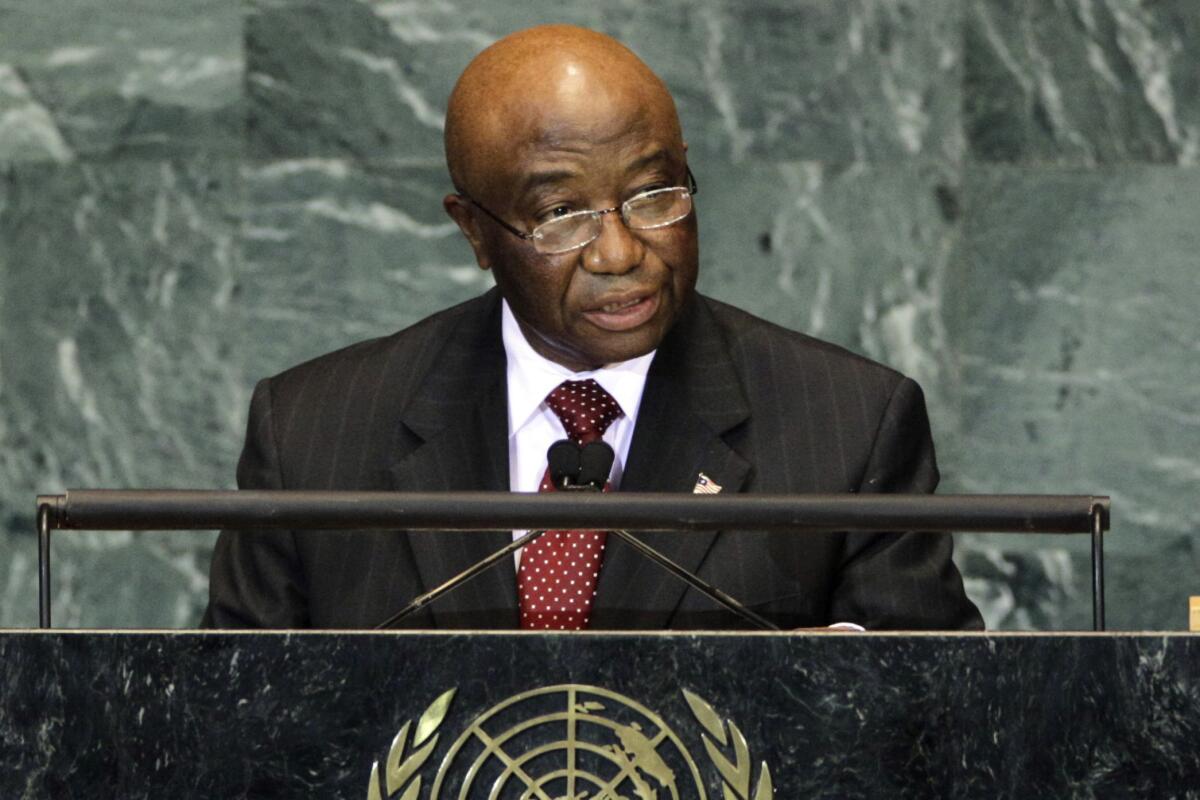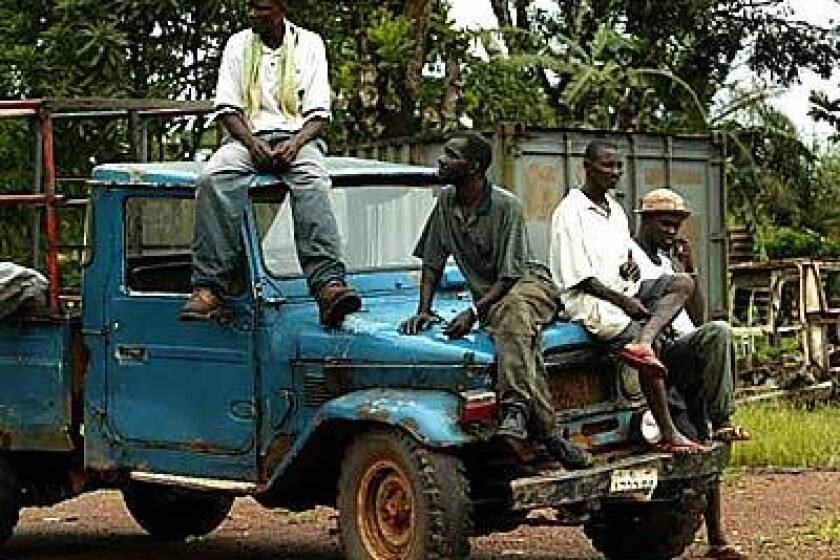Liberia’s new president takes office with a promise to ‘rescue’ Africa’s oldest republic

- Share via
MONROVIA, Liberia — Liberia’s new president, Joseph Boakai, was sworn into office Monday after his narrow win in a November election. Boakai, who at age 79 is the country’s oldest sitting head of state, promised to unite and rescue Africa’s oldest republic from its economic woes.
“Partisanship must give way to nationalism,” Boakai told citizens and foreign delegation members who attended his inauguration ceremony in Monrovia, Liberia’s capital. He listed improving adherence to the rule of law, fighting corruption and renewing “the lost hope” of citizens as his priorities.
The ceremony, however, ended abruptly after Boakai, who wore traditional Liberian attire for the occasion, began to show signs of physical distress while speaking. Officials led him away from the podium after he unsuccessfully tried to continue his address.
A spokesperson for Boakai’s political party said the president’s weakness was caused by heat and had nothing to do with his health.
Boakai has dismissed concerns about his age, arguing that it came with a wealth of experience and achievements that would benefit the country.
He won a tight runoff election to defeat Liberia’s youngest-ever president, George Weah. Public goodwill toward soccer-legend-turned-politician Weah waned as he neared the end of his first six-year term. Critics accused him of not fulfilling campaign promises to fix Liberia’s ailing economy, stamp out corruption and to ensure justice for victims of the country’s back-to-back civil wars between 1989 and 2003.
Boakai, who earned a university degree in business administration, has been active in Liberia’s national politics since the 1980s, when he served as the agriculture minister. Starting in 2006, he spent 12 years as vice president under Africa’s first democratically elected female leader, Ellen Johnson Sirleaf.
He lost his first run for the presidency in 2017 to Weah, who took over from Sirleaf in the West African nation’s first democratic transfer of power since the end of its civil wars. Boakai touted his second presidential campaign as a rescue mission to free Liberians from what he described as Weah’s failed leadership.
His promises notwithstanding, any positive changes from the new Liberian leader are likely to come slowly considering how different Boakai’s agenda is from his predecessors, according to Ibrahim Nyei, a researcher and political analyst at Liberia’s Ducor Institute for Social and Economic Research.
Liberia, the first African country to declare itself a republic and one of three African nations to take part in the establishment and adoption of the Universal Declaration of Human Rights in 1948, is on the brink of its own landmark achievement in human rights.
“It is not going to be a walk in the park for the Boakai administration,” Nyei said. “The new leadership will have to review concessions agreements signed by Weah and Ellen’s governments to establish which one works in the interest of Liberia [and] seek new international partners that will help address some of the country’s challenges.”
Monrovia resident Ansu Banban Jr. said he thinks Boakai will improve the lives of citizens. “I do not expect anything less than good from the president,” Banban said.
Boakai has a public reputation as a “hardworking and humble politician” whose personality and political experience suggest he “may show more dedication toward combating corruption than previous administrations,” said Zoe McCathie, a political and security analyst at Africa-focused Signal Risk Consulting.
“Nevertheless, it is unlikely that Boakai will be able to fully address this matter due to the entrenched nature of corruption within Liberian politics,” McCathie said. “Achieving sustained economic growth is expected to be an uphill battle for the Boakai administration [because] of the Liberian economy’s lack of diversification and dependence on imports.”
Asadu reported from Abuja, Nigeria.
More to Read
Sign up for Essential California
The most important California stories and recommendations in your inbox every morning.
You may occasionally receive promotional content from the Los Angeles Times.











